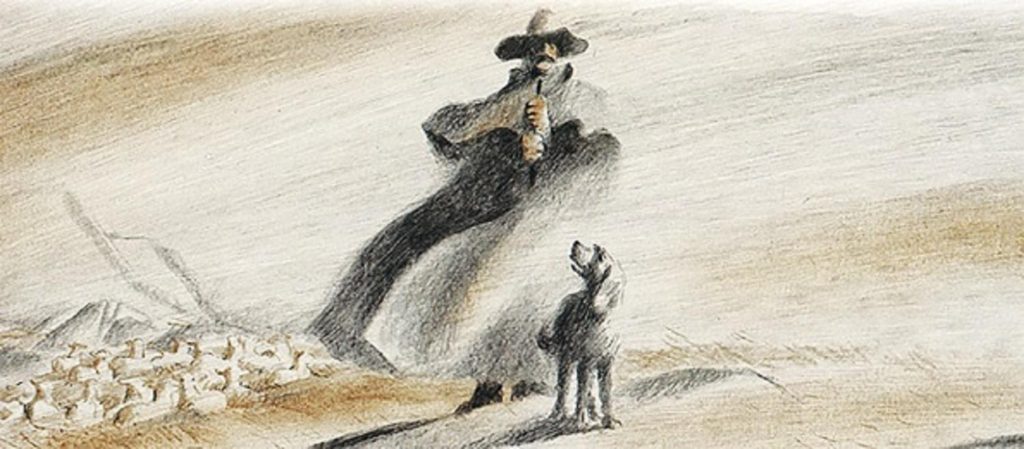
This beautifully animated short film begins before World War I in the deserted and desertified foothills of the Alps in southern France, where the narrator, on a hiking excursion, meets the peasant Elzéard Bouffier. Having lost his family, Bouffier has decided to dedicate the rest of his life to reforesting the region, one acorn at a time. The film follows their interactions over the decades as the narrator grows from youth to middle age and Bouffier from middle age to elderhood. As the selfless work of Bouffier’s hands becomes established, it eventually transforms the region from a state of desolation and despair to a place of hope, growth, and prosperity. The fulfillment of his work is a lasting fruitfulness. The Man Who Planted Trees is an inspiring study of profound possibilities—for social renewal, for replenished land, and for personal wisdom and happiness.
As to the film’s spiritual significance, the narrator distinguishes the work of a man in creating a forest with the “natural” work of God or providence, but this contrast is put in tension with the narrator’s reliance on religious language and analogies to understand the depictions of the transformed landscape (as Lazarus, raised from the dead, for instance, or as Canaan, the Promised Land). Ultimately, the narrator resolves this by seeing Bouffier’s work as “a task worthy of God.” The transformations depicted are made possible by a life lived in decisive commitment to such a task. The film portrays, as the narrator makes explicit, what it looks like when a person partners with God in the work of resurrection, suggesting that life, though it may be a movement toward death, can also be a movement in hope toward new life. — Robert Zandstra (2020)
- Directed by: Frédéric Back
- Produced by:
- Written by: Jean Giono
- Music by:
- Cinematography by:
- Editing by:
- Release Date: 1987
- Running Time: 30
- Language: English, French
Arts & Faith Lists:
2019 Top 25 Growing Older Films — #15
2020 Top 100 — #37